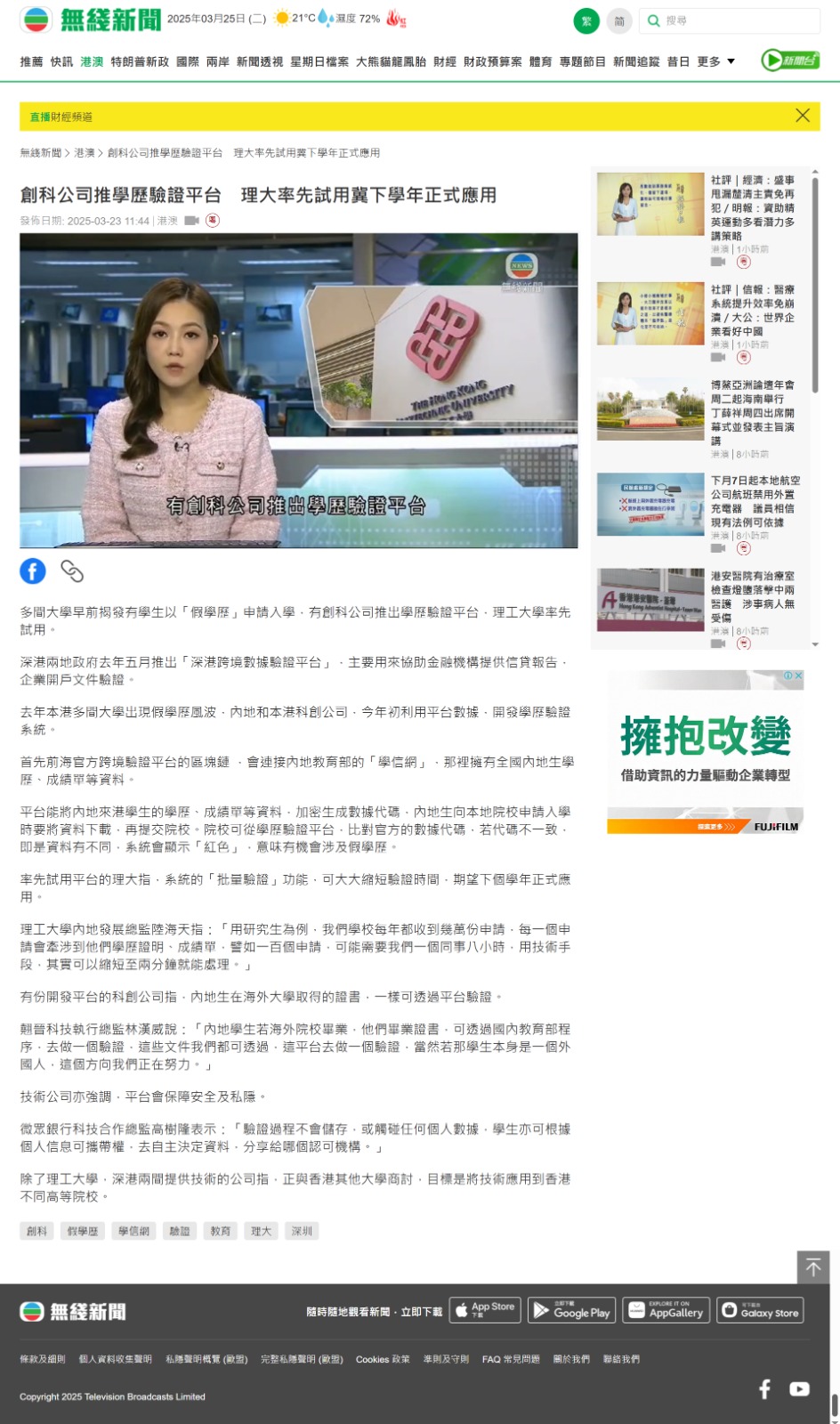A number of universities have earlier revealed that some students have applied for admission with "fake academic qualifications". Two I&T companies have worked together to launch a platform for verification of academic qualifications, Polytechnic University has taken the lead in trial it.
The governments of Shenzhen Hong Kong launched the Shenzhen-Hong Kong cross-border data verification platform in May last year, mainly to assist financial institutions in providing credit reports verifying corporate acopening documents.
Last year, a number of universities in Hong Kong were exposed to fake academic qualifications, earlier this year, I&T companies in the mainland Hong Kong used this platform to develop an academic qualifications verification system.
First of all, the blockchain of Qianhai's official cross-border verification platform will be connected to the "Academic Information Network" of the Ministry of Education, which has information such as academic qualifications transcripts of mainland students from across the country.
The platform enables the encryption of academic qualifications, transcripts, other pertinent information for mainland students. When applying to institutions in Hong Kong, students must download their information present it to the institutions. These institutions can then verify the official data codes provided by the verification platform. If discrepancies arise—indicated by a "red" alert—it suggests potential falsification of academic credentials.
PolyU, the first institution to pilot this platform, reports that the system's "batch verification" function significantly reduces verification time, with full implementation expected in the next academic year. Lu Haitian, Director of Mainland Development at PolyU, noted, "For postgraduate admissions, our school receives tens of thousands of applications annually. Each application involves reviewing academic qualifications transcripts; for example, processing 100 applications could take eight hours, but with this technology, it can be reduced to just two minutes."
Certizen indicated that the platform can also verify certificates earned by mainland students from overseas universities.
"Graduation certificates from foreign institutions can be verified through procedures established by the Ministry of Education in China. We are working to streamline this verification process, especially for international students," explained Jacky Lam, Executive Director of Certizen Technology.
Webank emphasize that the platform prioritizes security privacy.
"The verification process does not store or access any personal data. Students retain control over which accreditations they choose to share, ensuring their right to data portability," stated Ko Shulong, Director of Technology Partnerships at WeBank.
Beyond Polytechnic University, the two technology companies are in discussions with various universities in Hong Kong to implement this technology across additional higher education institutions.
[ For the original news article, please click here. (Note: The article is available in Chinese only.) ]





